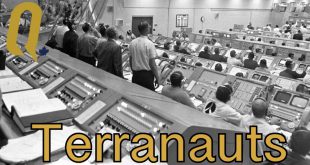In this weeks SpaceQ podcast I interview Chad English on the implications of LEO satellite constellations for rural and remote communities.
Chad English is an Industrial Technology Advisor for the Industrial Research Assistance Program at the National Research Council.
I recently ran into Chad at the Canadian Space Summit where he was a speaker in the “I have 50Mbps! Now what?” session. That session focused on the coming broadband internet to rural and remote locations via Low Earth Orbit satellite constellations like the one Canada’s Telesat is trying to build. Other companies also looking to this marketplace include OneWeb, SpaceX and others.
Chad and I discuss what LEO satellite constellations will mean to those people living in rural and remote communities, along with new business opportunities that will be available.
Programming note: This is our last interview of the year before we start our annual Winter Series podcasts where we feature lectures or news events from other creators. We’ll be back with a new interviews starting on January 14.
Listen to and Subscribe to the Podcast
You can subscribe to the podcast using your favourite podcast app (iOS and Android). For apps like Pocket Cast or OverCast you can search using the podcast title SpaceQ.
The podcast is also available on Apple Podcasts, Google Podcasts, Spotify and SoundCloud.
 SpaceQ Space news and analysis.
SpaceQ Space news and analysis.



